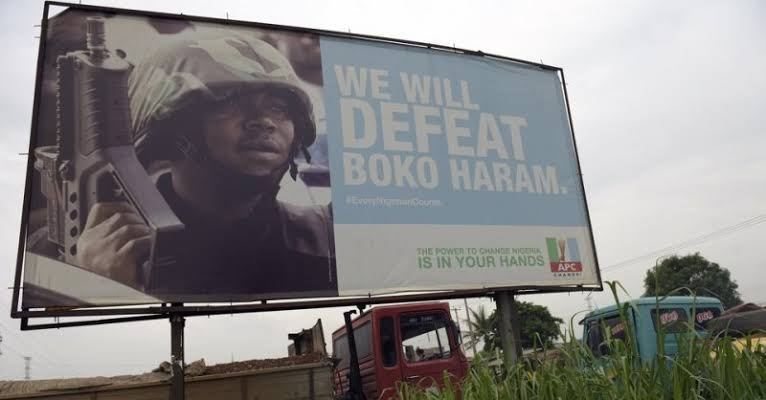
It is 10 years since Boko Haram transformed from radical Islamist sect to terrorist insurgency group, coinciding with the rise of its current leader, Abubakar Shekau. He succeeded Mohammed Yusuf (Abu Yusuf Al-Barnawi), a preacher fiercely critical of Nigeria’s wealth inequality and corruption despite the country’s return to democracy in 1999, which many believed would quickly remedy these ills.
In the first decade, the group set about fulfilling its name — decrying Western education and its influences while propagating radical Islamist messages. Boko Haram means “Western education is forbidden” in the Hausa language spoken in parts of northern Nigeria. The group fed on societal frustrations, poverty, illiteracy and widening inequality. Within a few years, Boko Haram became popular and increasingly antagonistic to non-Muslims and the Nigerian state. It became apparent that its escalating confrontations with state security forces were a threat to a young federal republic.
The group was banned in 2009, leading to widespread rioting and clashes with security forces that left more than 300 people dead. Its leader and dozens of its members also perished at the hands of Nigeria law enforcement, the same sort of blood and violence that has become a part of Boko Haram’s creed. Over 10 years, it has killed more than 35,000 people, injured thousands and displaced at least 2 million in an asymmetric “holy war” against the Nigerian state.
Just last week, a Boko Haram attack on a funeral procession in northeastern Nigeria claimed more than 60 lives. A few days earlier, a group of men on motorcycles opened fire on mourners returning from a burial, killing nearly two dozen, in an attack also linked to the group. A Boko Haram timeline features increasingly frequent massacres, shootouts, suicide bombings, kidnappings and even prison breaks.
Before the notorious Chibok kidnappings that attracted worldwide attention, Boko Haram attacks were few and far between, but since 2015 they have been a weekly, if not a daily, occurrence. Some victims may be part of the state security apparatus, the regional joint task force or local militias and vigilante groups, but the bulk of deaths and injuries affect innocent civilians. The Chibok tragedy has left a pervasive sense of despair across Nigeria because citizens are finding it difficult to trust that the federal government can protect the citizenry and eradicate Boko Haram.
Years of counter-insurgency operations by the Multinational Joint Task Force (MNJTF) between Nigeria, Chad, Niger, and Cameroon, with support from 300 US advisers, have neither eradicated Boko Haram nor slowed its operations. There is no shortage of manpower given the involvement of local militias and a private military company, but the group remains active and appears to show no signs of waning.
At the heart of these failures are reports of low morale among poorly equipped task force troops as well as porous Sahel-West Africa borders and rampant corruption, which allow Boko Haram to stock up on weaponry sourced from Daesh strongholds in Libya. Other factors, such as poor coordination, the lack of coherent strategies and failure to attain agreed objectives, have made success elusive for anti-Boko Haram operations.
In the meantime, the social and economic ills that gave rise to the group remain as pervasive as ever, especially in rural, largely insular communities far-removed from centers of wealth or urban areas such as Abuja, Lagos, Port Harcourt, Ibadan and Kano. The group has always thrived on these frustrations, despite Nigeria being resource-rich with vast oil reserves, natural gas, metal ores and arable land used to grow both food and cash crops. In fact, Nigeria’s economy is the largest in Africa and with a population of 200 million there is enormous potential as a market for goods and services as well as a massive labor pool.
The construction of a $15 billion oil refinery and the near eradication of polio are some of the bright spots in a country beleaguered by abject poverty, corruption, bribery, poor infrastructure and illiteracy. Boko Haram also benefit from the recruitment of former prisoners and the radicalization of disillusioned, poverty-stricken youths and young adults, swayed by the group’s rhetoric. Ironically, the group seeks to rid Nigeria of the same ills and lawlessness that have benefited its insurgency activities.
The lack of up-to-date coverage and credible reports have resulted in some confusion about who or what Boko Haram is, making it difficult to pinpoint how it operates. The Nigerian government has claimed since 2015 that Boko Haram has been degraded and defeated. Recent attacks have proved otherwise, which have given rise to a new narrative that these were remnants of Boko Haram, escaped convicts, elements of Al-Qaeda in the Maghreb and other Sahel-based terrorists.
This narrative fits reports that the Boko Haram “split” in mid-2016 into two Daesh-linked factions, with one of them, the Islamic State West Africa Province (ISWAP) receiving more formal backing. Accordingly, what the rest of the world refers to as Boko Haram is, at least according to the Nigerian government, a loose coalition of dangerous elements operating in parts of North Africa, across the Sahel and in West Africa. Unfortunately, the international response targeting these elements pales in comparison to the anti-Daesh offensives in Iraq and Syria.
The MNJTF is the only major military force confronting a dangerous, deeply embedded, heavily armed and well connected Boko Haram in its many various shades. Unfortunately, one of the members of this task force, Cameroon, is facing a separatist crisis within its own borders, which has escalated to a point where parts of the country are now lawless and ungovernable.
As in Syria, Yemen, Libya and Iraq, the Daesh playbook involves taking advantage of these types of crisis, taking root, recruiting, expanding and then splintering off, metastisizing into a massive network of self-financed insurgency groups that operate independent of Daesh central. The crisis in Cameroon would make it impossible for troops to be recalled, as it would weaken the frontlines while also leaving a gaping hole within its borders that Daesh-backed groups have proved capable of exploiting.
It can only be hoped that the $593 million sale of US A-29 reconnaissance and support aircraft as well as accompanying advanced weaponry will lend some teeth to the task force’s counter-insurgency operations. However, most countries have shied away from directly lending any type of military assistance in favor of humanitarian aid. In the absence of a sustained multination campaign targeting Boko Haram’s bases, arsenals, financial networks, trafficking routes, training camps, known leadership, community ties and known headquarters, exorcising the group from West Africa will continue to be a very difficult task.
Nigeria and its fellow task force members are in a fight against a coalition of seasoned guerrilla warfare veterans drummed out of Syria, Iraq and parts of Libya that have become more chaotic because of the recent attacks on Tripoli. They now relish the opportunities in a region caught fast asleep and ill-prepared to confront the horrors of modern asymmetric warfare, particularly its indiscriminate targeting of civilians.
- Hafed Al-Ghwell is a non-resident senior fellow with the Foreign Policy Institute at the John Hopkins University School of Advanced International Studies. He is also senior adviser at the international economic consultancy Maxwell Stamp and at the geopolitical risk advisory firm Oxford Analytica, a member of the Strategic Advisory Solutions International Group in Washington DC and a former adviser to the board of the World Bank Group. Twitter: @HafedAlGhwell
Disclaimer:
As an editorial policy, Breaking Times neither oppose nor endorse any opinion and contribution expressed by our writers and contributors. Contributions are strictly that of the writers only and do not represent the opinions of Breaking Times.
Op-Ed Contribution:
Our platform is for you. Want to submit an Op-Ed? If yes, kindly send your article and short biography to youreport@thebreakingtimes.com
You may be interested

Arteta Provides Injury Updates On Five Arsenal Players Ahead Palace Clash
Webby - December 20, 2024Arsenal manager Mikel Arteta has revealed that Declan Rice and Riccardo Calafiori are both available to be in the Gunners…

Carabao Cup: Spurs Edge Man United In Seven-Goal Thriller To Reach Semi-finals
Webby - December 19, 2024Tottenham Hotspur edged Manchester United 4-3 in the quarter-finals of the Carabao Cup on Thursday.Spurs raced to a 3-0 lead…
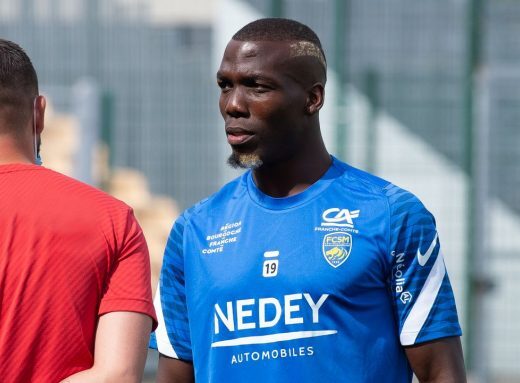
Pogba’s Brother Sentenced To Three Years In Prison
Webby - December 19, 2024Mathias Pogba, brother of former Manchester United star Paul Pogba, was sentenced Thursday by a Paris criminal court to three…



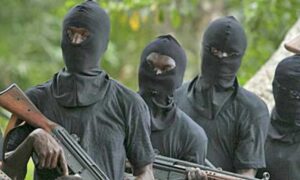





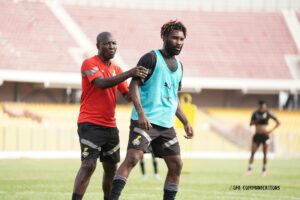








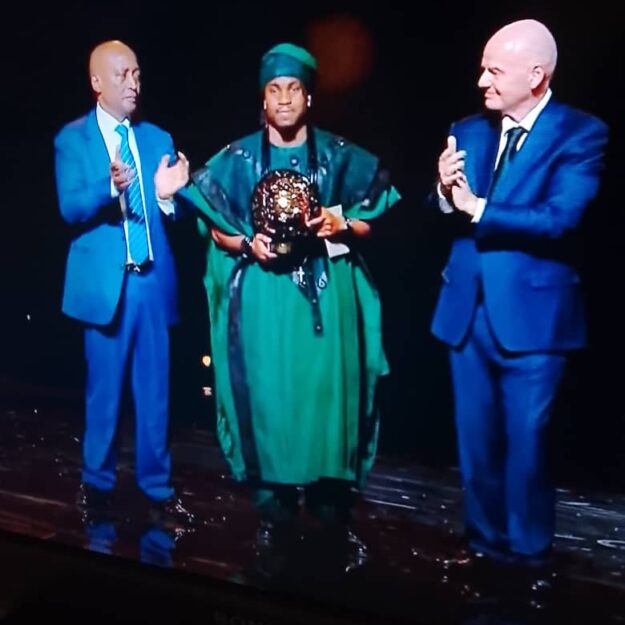

![American Pastor, David Wilson Seen Eating The Box Of Woman Who Isn’t His Wife [Video]](https://onlinenigeria.com/wp-content/uploads/2019/10/american-pastor-david-wilson-seen-eating-the-box-of-woman-who-isnt-his-wife-video-150x150.jpg)









